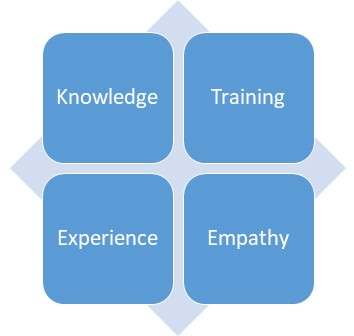Book Appointment
Fillup the form to make an appointment with the doctor
Total Knee Replacement Who Is The Best Joint Replacement Surgeon ?

My physician friends and some patients have asked me many times about who is the best in the joint replacement surgery world. Multiple claimants say they are the first in the city, state, or country in having done a procedure or used a particular prosthesis; how should one judge their claim? Is it just training? Knowledge? Skill? Does that make the difference? This question needs some serious thought because it affects the daily activities of patients, and a poorly done joint replacement is difficult to undo. Dr.Allan McLeod Cormack once said – “There is also hope that even in these days of increasing specialization, there is a unity in the human experience.” This statement encompasses what is needed in an excellent surgeon. Four qualities reflect a surgeon’s ability: knowledge, training, experience, and empathy.
For all marketed information, develop a sharp eye when looking for information about an individual. Overstatement, self-promotion, and exaggeration is part of medical marketing, as well. So please develop a critical eye when looking for information in the public domain.
The training of a surgeon has a significant bearing on the ultimate skills a surgeon acquires. The Western world has a uniform curriculum and standard board where everybody needs to meet a certain standard before they are certified for specific skills. In India, that uniformity is absent, and the difference of training in a good government medical college Vs. For-Profit private college can be tremendous. This situation is compounded by claims of fellowship training in India and abroad, as well. There are simple ways to look at a person’s surgical training. Anybody who has prescribed medicine to a patient in the US needs to have an NPI number, which is a digital verification. Most structured fellowship have hands-on experience while a vast majority visit these countries on observership where they are not allowed to touch a patient but only observe. Without NPI, the person has most likely not trained in the US.
Here is the link for NPI verification. https://npiregistry.cms.hhs.gov/
Similarly, the UK has a GMC register, which has online verification for GMC number and shows the level of training there. Post-2005 people registered to GMC can be verified on the website.


https://www.gmc-uk.org/registration-and-licensing/the-medical-register
Ultimately, most surgeons will display their credentials in their office and would be happy to share their accomplishments. If one is unable to find proper evidence of their training, then there could be something more than what meets the eye.
Judging a surgeon’s knowledge, especially for the lay public, will be difficult. There are objective and subjective ways to approach this tricky subject. Many surgeons would take offense if the patient questioned their knowledge, but simple questions can be reliving.
Why do you use a particular prosthesis?
What is the ten-year survivorship of the implant?
What is your complication rate?
Is the prosthesis FDA approved or FDA cleared?
Some may exaggerate their academic accomplishments, while others may claim several publications. Websites like google scholar and PubMed will help search for individual academic achievements.
Experience with age as a surrogate is an assumption of competence. Experience has a huge role to play, but that has other confounding variables. Studies have shown that surgeons are at their peak between the age of 35-55, and expertise partly determines clinical outcomes. The volume of surgery can again be tricky, but if a surgeon claims to be operating more than 1,000 operations in a year, either they have assistants performing large parts of the procedures, or they are not attentive. On average, it takes an hour for an excellent surgeon to complete a total knee, and it is difficult for a surgeon to see OPD and perform more than 1,000 surgeries in a year.
Empathy- this is one of the most underrated but vital part of patient care. We would rank this higher than any other character for a surgeon. There are excellent surgeons, but some lack that ability to relate to a patient, explain the process, outcomes, and assure of their presence even if there is an adverse outcome. Most of us can judge others’ emotions. If the person is inattentive, mechanical, and hurried, then the surgeon is not showing enough interest in your problem.
Here is a link to a fascinating article that talks of whether surgeons are born or made? Inflated ego and exaggerated sense of self-importance can become barriers to patient care. It is wise to remember that the right surgeon will always show equipoise and recognize their limitations. https://www.sciencedirect.com/science/article/pii/S174391911301008X
If a surgeon claims ZERO COMPLICATIONS, it is time to avoid that surgeon because such surgeons do not exist in the real world and are lying.